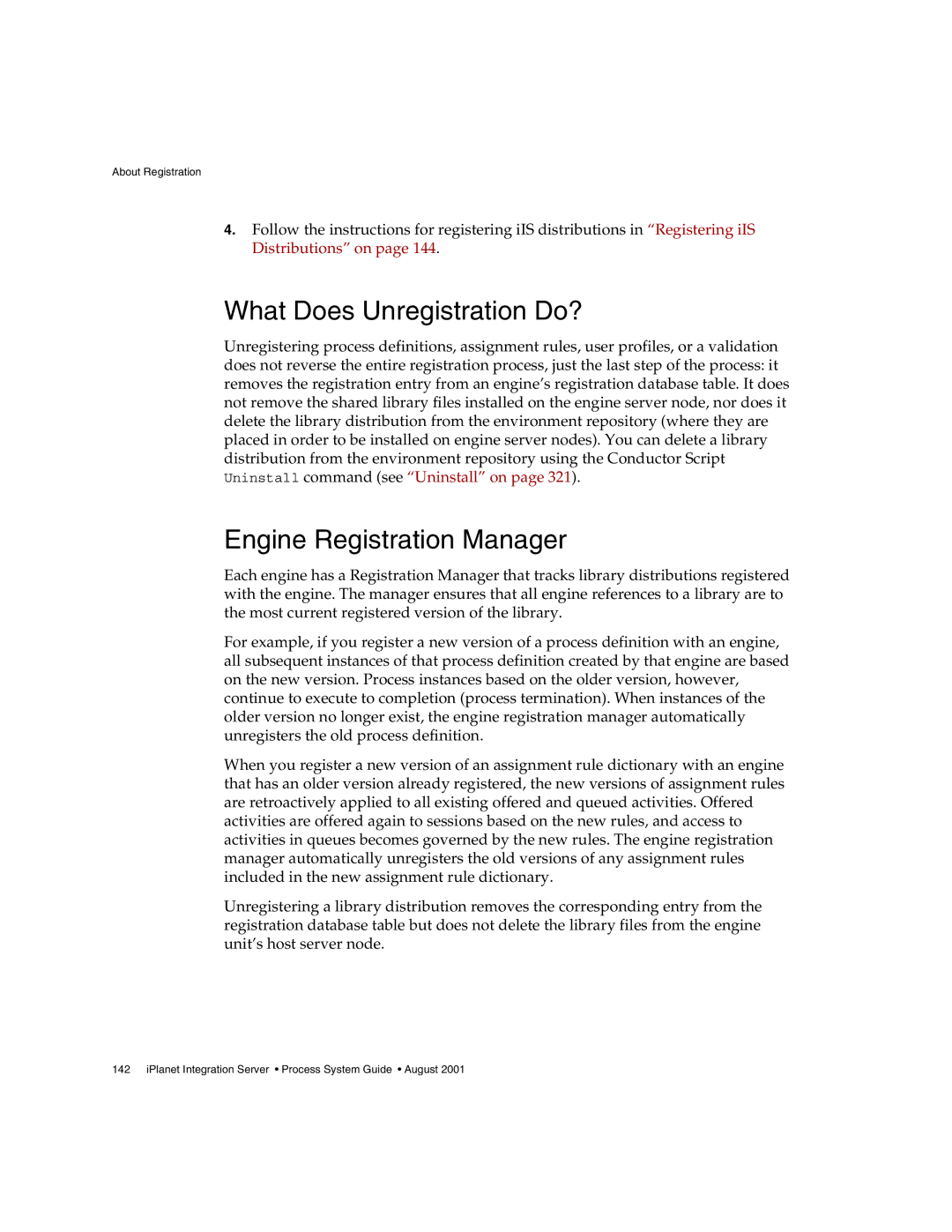About Registration
4.Follow the instructions for registering iIS distributions in “Registering iIS Distributions” on page 144.
What Does Unregistration Do?
Unregistering process definitions, assignment rules, user profiles, or a validation does not reverse the entire registration process, just the last step of the process: it removes the registration entry from an engine’s registration database table. It does not remove the shared library files installed on the engine server node, nor does it delete the library distribution from the environment repository (where they are placed in order to be installed on engine server nodes). You can delete a library distribution from the environment repository using the Conductor Script Uninstall command (see “Uninstall” on page 321).
Engine Registration Manager
Each engine has a Registration Manager that tracks library distributions registered with the engine. The manager ensures that all engine references to a library are to the most current registered version of the library.
For example, if you register a new version of a process definition with an engine, all subsequent instances of that process definition created by that engine are based on the new version. Process instances based on the older version, however, continue to execute to completion (process termination). When instances of the older version no longer exist, the engine registration manager automatically unregisters the old process definition.
When you register a new version of an assignment rule dictionary with an engine that has an older version already registered, the new versions of assignment rules are retroactively applied to all existing offered and queued activities. Offered activities are offered again to sessions based on the new rules, and access to activities in queues becomes governed by the new rules. The engine registration manager automatically unregisters the old versions of any assignment rules included in the new assignment rule dictionary.
Unregistering a library distribution removes the corresponding entry from the registration database table but does not delete the library files from the engine unit’s host server node.
